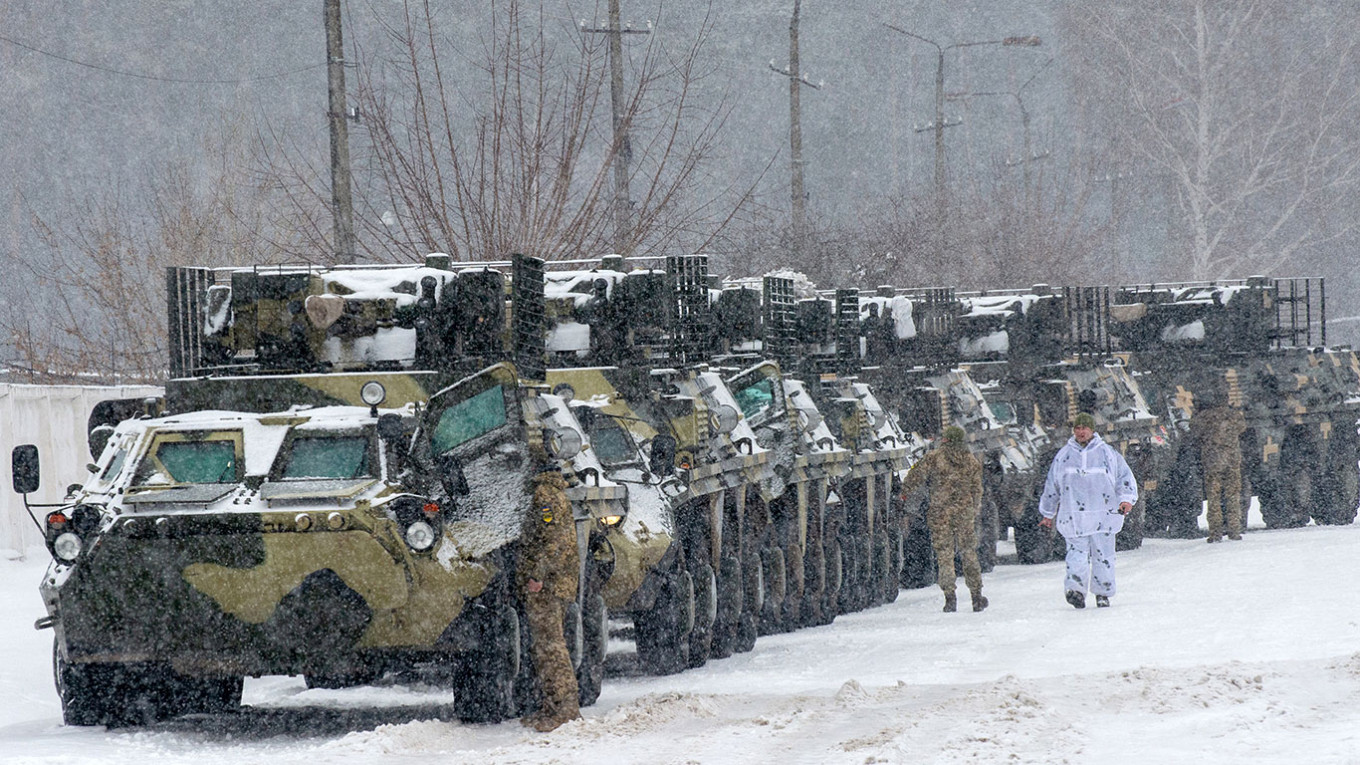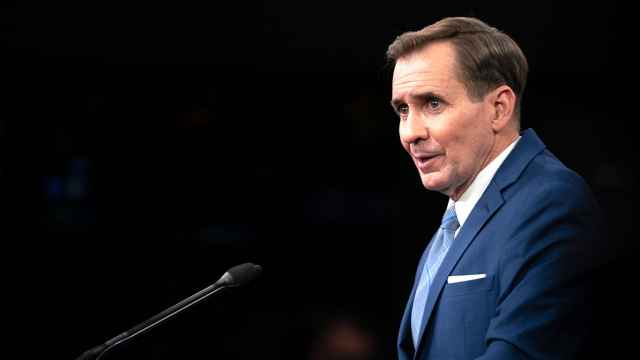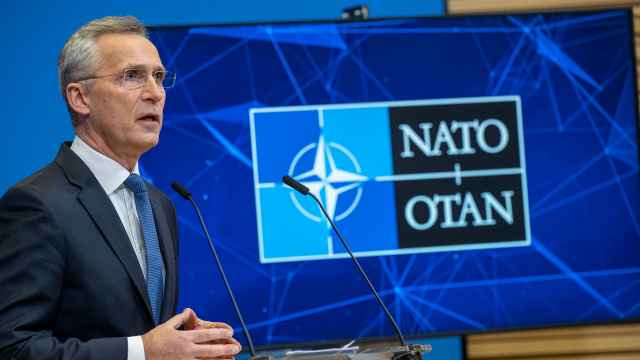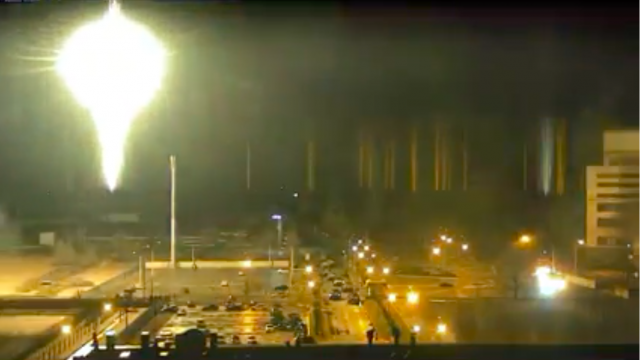In the years following Russia’s 2014 annexation of Crimea, the average Russian saw most domestic events, including social and economic problems, as part of the new normal. Even extraordinary aspects like Western sanctions were perceived as routine. Now something similar has happened with perceptions of war. Since at least 2014 (and, possibly, since the Russia-Georgia war in 2008), war has been a distant backdrop to ordinary life: Crimea, Donbas, Syria, mercenary armies, hypersonic weapons, and, most recently, a peacekeeping mission in Kazakhstan.
Our research has shown that Russians do not consider such limited military operations to be “real wars.” These events bear no relation to everyday life. Soldiers may lose their lives, but that is seen as part of the occupational risk. The army has gradually overtaken the presidency as the most trusted Russian institution, and Defense Minister Sergei Shoigu has long been the most popular minister, second only to President Vladimir Putin.
But suddenly, there is the threat of a very real war. A conflict with Ukraine would be nothing less than a proxy war with the West: above all, the United States and NATO. The chance of war breaking out in 2022, according to a survey from December 2021, is seen by Russians as much higher than the year before; and would definitely fall outside the limits of the new normal.
Growing belief in the likelihood of war reflects a worsening of the general mood in Russia, which was far gloomier at the end of 2021 than a year earlier. Expectations of an economic crisis are much higher, as are expectations of some sort of a coup d’état, or another epidemic. For example, 63 percent of respondents expected an economic crisis at the end of 2021, compared with 49 percent a year ago; 37 percent anticipated a conflict with a neighboring country (compared with 23 percent a year ago), and 25 percent expected a war with NATO or the United States (up from just 14 percent the previous year).
Of course, after an alarm-filled January, the mood may have worsened even further. In other words, the post-2014 new normal appears to be on the verge of disintegration: a major war is not normal. Some conclusions can be drawn over how public opinion could evolve in the event of a war by extrapolating existing trends.
Financial markets and the ruble have already shown what they think about even the possibility of a large military conflict. Even before the imposition of new Western sanctions, a Russian invasion of Ukraine would cause the ruble and stock markets to plummet, as well as a new ice age for the investment climate.
It would appear that there is no political opposition left to put under pressure, but, in the event of war, the legislative machine that passes laws on “foreign agents,” “undesirable organizations,” and extremists would outdo itself. Any street protests would become impossible, the internet would become subject to extra controls, and Russians could forget about any remaining constitutional rights or freedoms. It would be surprising if people were still allowed to freely cross Russia’s borders.
Of course, the Kremlin would be able to convince most people of the need for a military operation, which would be presented as limited in time and scope. However, this is unlikely to lead to more support for the authorities: the most we might expect would be a fleeting bump. Rising support for the president and a readiness to go and fight would be a long way off.
Despite years of military propaganda, Russia’s modern and urbanized society is very much in the “post-heroic age” (a term coined by British military historian Michael Howard), and few are ready to die for the motherland and for Putin. A brief initial period of support for the authorities could quickly turn into open dissatisfaction, particularly against the backdrop of serious socio-economic problems. The regime stands to lose the trust of most of the younger generation.
In the event of war, resource-intense endeavors like the energy transition and Putin’s major investment initiative known as the National Projects would suffer, as would Russia’s GDP and the real incomes of ordinary people, which only began to recover tentatively in 2021. While the government would likely continue to meet its social obligations (otherwise it would be impossible to guarantee political loyalty), it wouldn’t just be a question of state handouts: inevitably, the consumer mood would darken. There would be problems on the food market and inflation would likely spiral (at the beginning of 2022, there were few, if any, deflationary pressures).
Day-to-day life would be affected: for example, by Russia being excluded from the SWIFT international payment system. This could cause dissatisfaction not only among the lower classes, but also among the more sophisticated— from a consumer point of view — middle class. It’s not difficult to predict problems for small- and medium-sized businesses.
This could give rise to the rare situation of socio-economic dissatisfaction becoming political dissatisfaction, or even political protest. The example of widespread anger at the decision to increase the retirement age in 2018 is not really appropriate here, because back then, people were protesting about the state violating the Soviet, paternalist social contract, not about a worsening economic situation. This time, there could be leaderless and spontaneous socio-political protests.
This would not be a protest movement among liberal circles, but among the part of the population the authorities have always considered their social base: people of a paternalistic mindset. It’s those people who voted for the Communist Party in the 2021 parliamentary elections, in the absence of other legal instruments for expressing displeasure. Having said this, the authorities would not sit back and allow mass anti-war demonstrations: any protest movement would quickly be designated “extremist” or “terrorist.”
Combined with the ongoing fallout from the pandemic, it seems clear that any war would destroy the still-relevant Putinist model of the state as stable and successful. Instead of mobilizing public opinion ahead of the 2024 presidential election, it would have the opposite effect. And it’s extremely unlikely that a “NATO consensus” would replace the “Crimean consensus” of 2014, which saw Putin’s approval ratings soar.
Regardless of how the average Russian feels about a possible war with Ukraine, if such a war should break out, it will be difficult to convince the West that it should not equate the political regime in Russia with ordinary Russians. And this would be the worst consequence of the political course pursued by the Russian state for the last two decades.
This article was first published by the Carnegie Moscow Center.
A Message from The Moscow Times:
Dear readers,
We are facing unprecedented challenges. Russia's Prosecutor General's Office has designated The Moscow Times as an "undesirable" organization, criminalizing our work and putting our staff at risk of prosecution. This follows our earlier unjust labeling as a "foreign agent."
These actions are direct attempts to silence independent journalism in Russia. The authorities claim our work "discredits the decisions of the Russian leadership." We see things differently: we strive to provide accurate, unbiased reporting on Russia.
We, the journalists of The Moscow Times, refuse to be silenced. But to continue our work, we need your help.
Your support, no matter how small, makes a world of difference. If you can, please support us monthly starting from just $2. It's quick to set up, and every contribution makes a significant impact.
By supporting The Moscow Times, you're defending open, independent journalism in the face of repression. Thank you for standing with us.
Remind me later.








